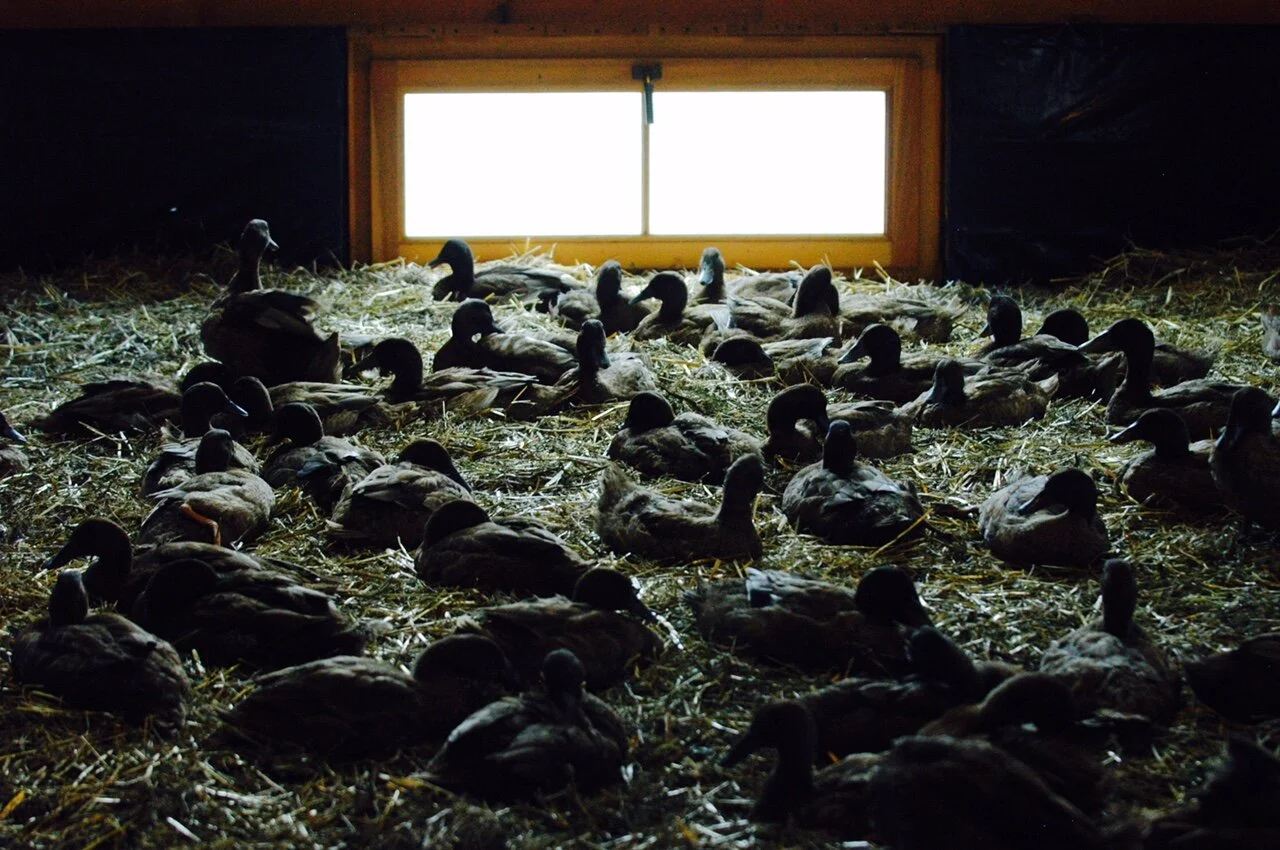Offering soup and bread, a Huntington farm tests a radical economic idea
Farm team member Evan Hoyt describing the various loaves of bread they have to offer at Brush Brook. Photo by Emily Shedd.
On a Saturday afternoon in Huntington, Brush Brook Community Farm was giving away bread and soup under early spring sunshine. The event, led by baker and farmer Adam Wilson, has taken place each week for 11 months — Wilson sees it as a “gift economy,” one that he hopes to sustain as long as he can.
In fact, all the farm’s food is offered as a gift to community members. It’s an approach that started last year when the team began offering free-to-all meals at the Huntington Town Hall last year, Wilson said.
“We called those gratitude feasts and those were really beautiful,” Wilson said. “That gave us all sorts of ideas on what can happen when you just start giving food away –– how people start interacting with one another, with the animals, and with the land.”





The final town hall feast happened the weekend before the pandemic stalled life in Vermont, and with 125 people, it was the biggest one yet. After the meal, many stayed to dance. Amid the pandemic, Brush Brook Community Farm took on giving away food as a radical new mission.
Each week, the farm produces roughly 250 loaves of bread and 25 gallons of soup. The soup is a “collection of everything we do on the farm: The beef, the lamb, veggies, herbs, etc.,” Wilson said. Soups, he added, are flexible enough to maximize use of the farm’s constantly changing harvests.
Evan Hoyt, who has been at Brush Brook for about a year, is on the 7-member farm team that handles farm operations. “We have been really well received here — all of us,” he said. “The farm team are really grateful to be a part of this community and to have the chance to share in food that we all are collectively helping bring into being.”
As a Community News Service reporter visited on a recent Saturday, masked and distanced community members filtered in and out of the distribution greenhouse to grab loaves of bread and quarts of soup.
“The philosophy is what I love most,” said Rebecca Weis, of Williston, about the guiding principle of the gift economy. Weis is a frequent visitor and contributor to the Brush Brook Community Farm and shared that she comes out mostly every week to pick up some soup and bread. She further emphasized the importance of donating back to the farm.
“In the harvest season I donated squash, tomatoes, beans, peppers,” Weis said. “Now we make a donation every week for the bread that we pick up and a little bit extra – because they are just giving it away!”
“It’s a whole sense of community –– and it’s expanding –– I am seeing people coming from Starksboro, Lincoln, Richmond, and Williston,” Weis said.
Monetary contributions like those Weis makes are essential for a farm that, philosophy aside, has to keep the lights on and equipment running. “Money will still be required,” the website notes. “If the budget is not met, the experiment will end or change shape.”
In that sense, Brush Brook’s gift economy project poses a question: How will neighbors respond to a project that doesn’t fit neatly into our current system?
Gift economies have long thrived in cultures — from the Brazilian Amazon to sub-Saharan Africa — that see themselves as linked by a web of interdependence. While Vermont prides itself on a strong sense of community, it still runs more on banking than bartering.
Wilson and the team at Brush Brook Community Farm appear undaunted. Their mission is soaring and their hopes are high. It is “a journey of homecoming,” they write. “Returning bit by bit to the good work of caring for one another and for the home place that sustains us.” Time will tell if such a journey can begin with soup and bread.









